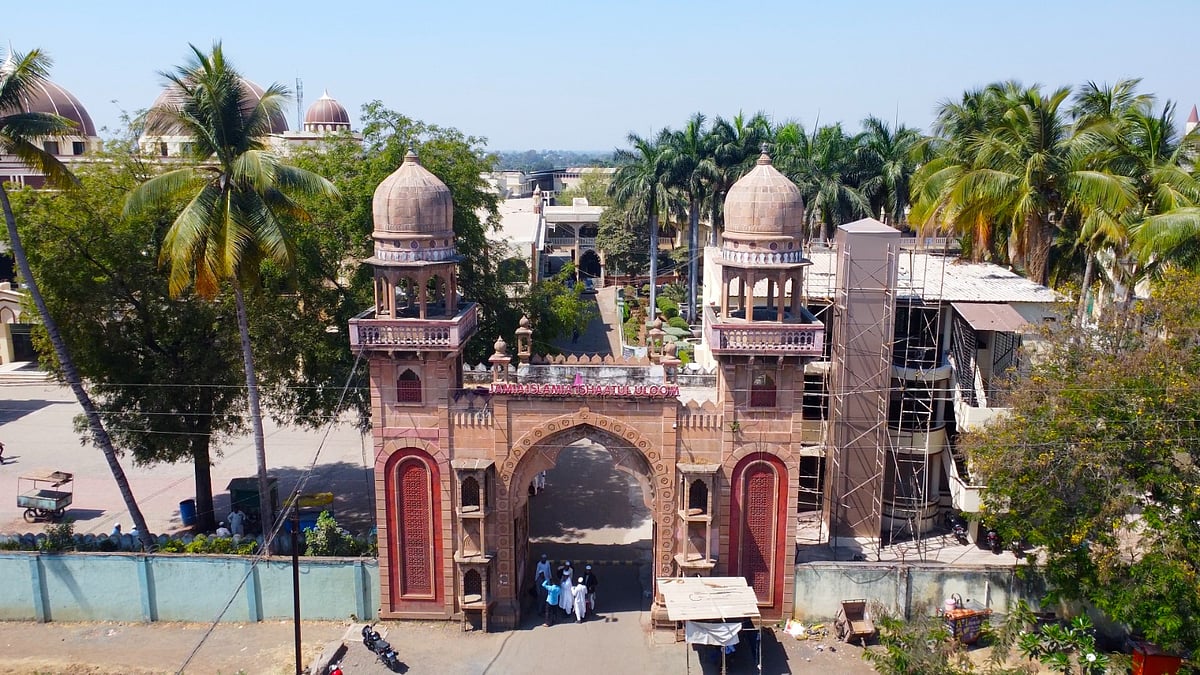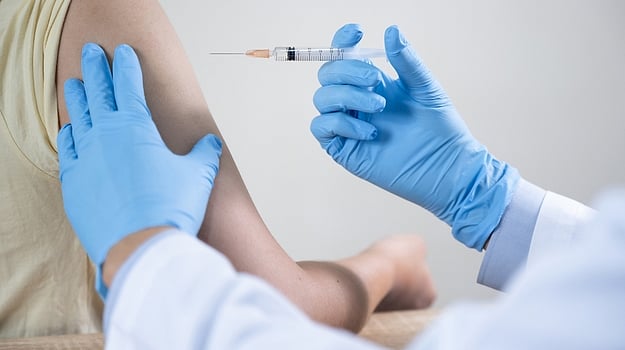On Saturday, Haryana Health Minister tested positive for coronavirus disease (COVID-19), days after voluntarily taking a test dose of Covaxin, Bharat Biotech's indigenous COVID-19 vaccine.
The minister himself took to his official Twitter handle to confirm the news of him testing positive for the virus, reminding in good faith all those who had come in close contact to him to get themselves tested as well.
However, within moments of the news breaking the barriers of the web, panic predictably spread throughout social media — with netizens being alarmed by the development and wondering if the vaccine was, after all, a 'fake'. Several others also took to this opportunity to take a jibe at the BJP-led government.
Now, most of these comments might well be typical social media shenanigans, but it's also symptomatic of uninformed and ill-researched ideas that most people hold about the scientific process behind vaccine research and its subsequent administration to volunteers.
Official statements
Although the Hyderabad-based Bharat Biotech, the firm that developed and manufactured the Covaxin shot, has for its part provided the reasoning behind why one should wait before writing off the vaccine, many users remained blissfully unaware of the exact process which would determine the efficacy of the indigenous COVID-19 vaccine.
The pharmaceutical company, in a statement on this day, said that the phase three trials are 'double-blinded' and 'randomized', where 50% subjects receive the actual vaccine, while the rest receive the 'placebo'.
Since Covaxin trials are based on a "two-dose schedule", given 28 days apart, the company rightly said that it would be prudent to wait 14 days post the second dose to determine the efficacy of its COVID-19 vaccine.
The Union Health Ministry on Saturday clarified that Vij took only the first dose of the two-dose vaccine.
So here's a brief explainer on 'placebo' vaccines, 'double-blinded trials' and every other thing that the firm sought to explain in its statement:
What is 'placebo' in clinical trials?
The 'placebo' is technically a pharmaceutically inert substance that is used by a clinical researcher as an analogue to the scientist's control experiment.
The substance often produces a psychological response (known as the "placebo effect") in the subject that can affect how patients perceive their condition and encourage the body's chemical processes for relief.
The term hides a paradoxical meaning to it — because if something is 'inert' by definition, it should be unable to elicit an effect — and yet the substance influences the subject in psychological ways, even without having any impact on the disease itself.
What this means is that researchers often use placebo response in randomised controlled studies and clinical trials, often in conjunction with the actual treatment (a vaccine, in this case) to prove the effectiveness of the cure above and beyond the psychological results of a simple belief in the ability of the drug to cure.
Covaxin trials
Which brings us to the procedure that health experts followed while administering the Covaxin shot to the volunteers of the clinical trials, which included Haryana Health Minister Anil Vij.
The process involved a technique known as 'Randomised double-blind placebo control study" (RDBPC), sometimes regarded as the “gold standard” in intervention-based studies.

Essentially, it involves randomly assigning the intervention, thereby eliminating confounding by baseline variables. It also involves 'double-blinding', which eliminates confounding by co-interventions.
In other words, all participants, investigators and study staff are 'blinded', i.e. they are unaware of whether the trial dose consists of the vaccine or the placebo (the inert substance with no effect).
Why one shouldn't panic about vaccine efficacy just yet
Therefore, this opens up two possibilities. Since neither the participants nor the experimenters know who is receiving a particular treatment, it can either be that:
1. Anil Vij received a placebo instead of a vaccine, which obviously produced no effect on the COVID-19 infection when he came down with it.
2. Even if he received the actual vaccine, it is well-known that the shot requires some time to produce antibodies, and it could just be that he tested positive for the virus before the vaccine actually had a chance to kickstart the body's immune system to fight the infection.
Now, we do not know if Vij was part of the placebo group. It is also not clear whether two weeks would have been enough time for someone to develop immunity when the second dose of the vaccine is yet to be administered.
As such, it is impossible to debate at present about the efficacy of the vaccine and it would be prudent to heed the firm's suggestion and wait patiently for the efficacy results, given that the vero cell manufacturing platform used for Covaxin has delivered more than 300 million doses till date with a good safety track record.
Bharat Biotech has also conducted more than 80 clinical trials in its two-decade history across 18 countries on almost 6 lakh subjects.
But would that stop social media from making unfunny, ill-researched jokes? Possibly not.










